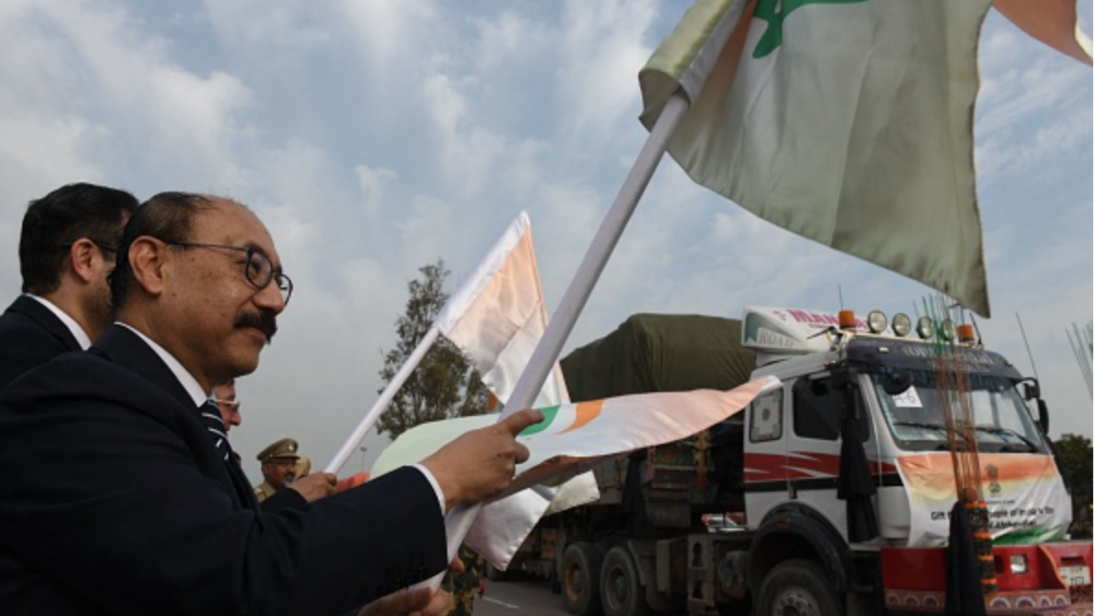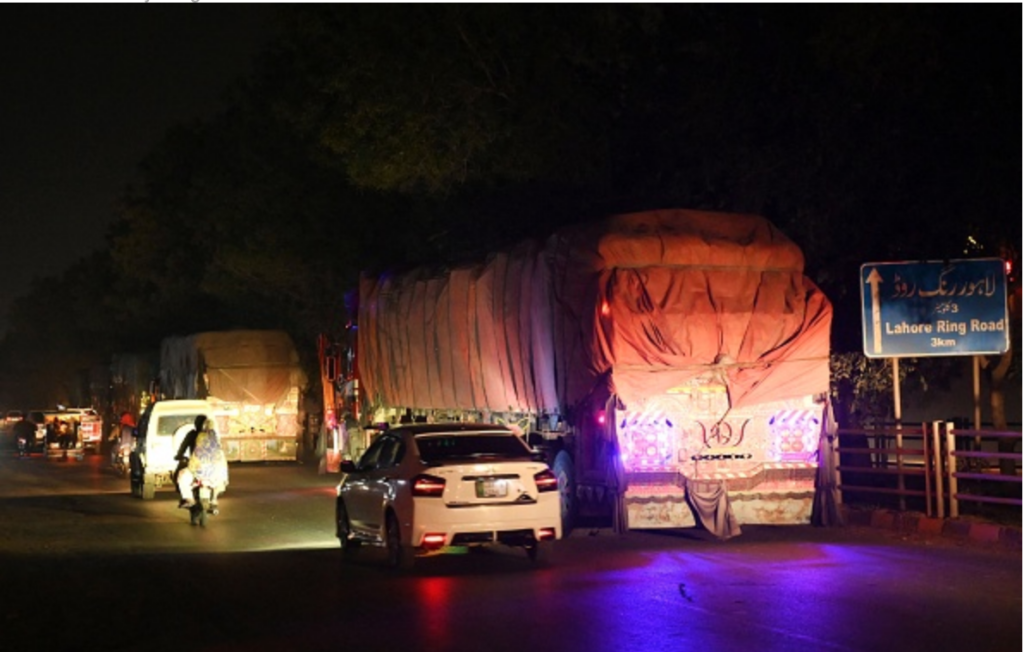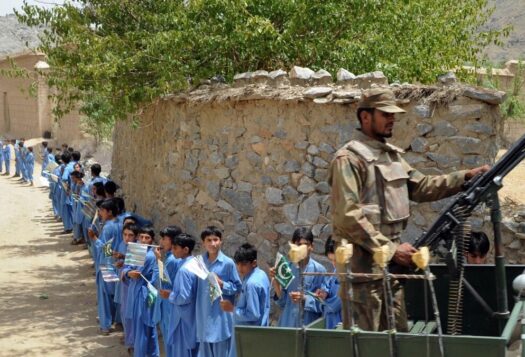
The Taliban completed its six months in power in Afghanistan on February 15. Under its regime, there has been little stability over the past six months. While Taliban has used the pretext of the humanitarian catastrophe in Afghanistan to push for recognition, not a single country—including Pakistan—has officially recognized its rule.
With national security concerns in mind, India has also shown no signs of recognizing the Taliban regime. Nonetheless, New Delhi has recalibrated its Afghanistan strategy by engaging with the regime informally, addressing security threats emanating from Afghan soil, and continuing people-to-people exchanges. It provided emergency humanitarian assistance despite connectivity constraints and the absence of a functional embassy in Kabul. Despite ideological differences, India also hopes to increase its engagements with the Taliban in the coming months by leveraging growing differences between the Taliban and Pakistan.
The course of events in Afghanistan since August 2021 have led India to adopt a flexible and pragmatic approach to the country. This has afforded India a place in regional discussions on Afghanistan, contrary to initial perceptions that India lost out completely in Afghanistan after the Taliban takeover.
Tracing India’s security concerns in Afghanistan
Taliban’s forced ousting of the democratically elected Ashraf Ghani government was a major setback to India’s security. India’s perception of Taliban has been innately shaped by the events surrounding the hijacking of IC-814 Indian Airlines plane in December 1999. The plane, hijacked by Pakistan-based terrorists from Kathmandu, had ultimately landed in Kandahar—the Afghan capital under the first Taliban regime. Indian negotiators, working to release the hostages had concluded that the hijackers had received an active backing from the Taliban and Pakistani Army. India ultimately resolved the crisis by swapping three most-wanted militants including Masood Azhar—who subsequently established the Jaish-e-Mohammed (JeM) terrorist group in Pakistan—and Omar Saeed Sheikh—later involved in the killing of US journalist Daniel Pearl in 2002—for the hostages.
New Delhi has recalibrated its Afghanistan strategy by engaging informally with the Taliban regime, addressing security threats emanating from Afghan soil, and continuing people-to-people exchanges.
In 2001, when the Taliban was overthrown after the U.S.-led invasion of Afghanistan, India’s security concerns were partially mitigated. India actively engaged with the new dispensation in Kabul, reflected in how, over the past 20 years, India invested over USD $3 billion in Afghanistan. This includes the construction of the Afghan parliament, education and health infrastructure, a major hydropower dam, and the 218-kilometer Zaranj-Delaram highway.
However, with Taliban back in power in Kabul, India believes these developmental efforts may have come to naught, aggravating its security concerns. Indian security establishment believes that a hardline Islamic Sharia-based government may spread its radical ideological influence across the subcontinent, boosting the morale of the Islamist terror groups operating in India and generating stronger recruitment and violence. This belief is reinforced by the Taliban’s insistence on establishing an “Islamic Emirate” and not a “Republic,” which could have denoted an effort to establish an inclusive polity.
The hasty and unceremonious U.S. exit from Afghanistan and the fact that India was not part of any potential settlement on Afghanistan before the US exit further amplified Indian concerns. New Delhi perceived that the United States relied overly on Pakistan to facilitate its quick exit from the country. Even now, Washington appears to be leaning on Islamabad to fix Afghanistan imbroglio. India is not comfortable with this arrangement as it increases Pakistan’s control and influence in Afghanistan.
New Delhi fears that Pakistan will use Afghan soil more freely to train, equip and motivate anti-India terror groups like the Lashkar-e-Tayyaba and JeM under the Taliban’s watch and eventually use them to foment instability in Jammu & Kashmir (J&K). The absence of a democratically elected government and the dismal law and order situation in Afghanistan under Taliban rule has already exacerbated those fears. New Delhi’s immediate focus remains to ensure that Pakistan does not exploit Afghanistan’s instability and use its soil for anti-India terrorist activities, especially in J&K—as it has in the past.

India’s recalibrated approach to Taliban and Afghanistan
Within a fortnight of the Taliban takeover of Kabul, Indian officials in Qatar met with the Taliban representatives on August 31, 2021, signaling the significance of limited engagement to India’s security calculus. During the meeting, India underlined its security concerns on terrorism and reportedly received Taliban’s assurances on the same.
Afghanistan’s humanitarian and economic crises may have also provided an opening for India to redefine its strategic approach. Since the Taliban takeover, India has supplied wheat and other essential food items and 500,000 COVID-19 vaccines as humanitarian aid to Afghanistan. Carrying this engagement forward, the Indian government has announced financial assistance of USD $27 million to Afghanistan in its 2022-2023 budget.
Furthermore, with ongoing uneasiness between Islamabad and Kabul over issues like border skirmishes, in addition to lack of headway in Taliban-Islamabad peace talks, the Taliban may give greater leverage to New Delhi for further engagement. This is contingent on the Taliban’s reciprocity in addressing India’s core security concerns. Interestingly, despite Islamabad’s initial reluctance, India has shipped humanitarian assistance to Afghanistan via Pakistani territory. This arrangement may likely continue in the future since the Taliban administration has welcomed it, much to Islamabad’s chagrin.
With ongoing uneasiness between Islamabad and Kabul over issues like border skirmishes…the Taliban may give greater leverage to New Delhi for further engagement.
But even as India recalibrates its policy, one dimension of this policy remains unchanged—an eagerness to work with like-minded countries in the region and outside to bring peace and stability to Afghanistan. For example, in November 2021, New Delhi conducted the “Third Regional Security Dialogue on Afghanistan,” followed by the India-Central Asia dialogue in December 2021 to “find ways of helping the people of Afghanistan.”
Notwithstanding concerns over Washington’s approach, New Delhi hopes that it can continue working with the United States to pressure Pakistan into addressing India’s security concerns in Afghanistan. India takes its cue from events of the past few years, such as Balakot airstrikes (February 2019) and the surgical strike (September 2016) in Pakistan-administered Kashmir as a response to cross-border terrorist attacks. New Delhi will not deter from another escalation in case of a major terror strike on the Indian soil by a Pakistan-based terror outfit. It would be essential on the U.S. part to limit, or at least check, Pakistan’s anti-India activities in Afghanistan to maintain regional stability.
Conclusion
The Taliban regime is engaging with the international community and warring ethnic Afghan groups to bring greater stability in the hopes of securing diplomatic recognition. Pakistan is helping the interim Taliban government in this process by facilitating talks with the international community to press for the recognition. Consequently, the Taliban is becoming more dependent on Pakistan, further consolidating Islamabad’s influence in Kabul. For India, a “Pakistan-dependent” government in Afghanistan is not ideal as it is likely to generate security issues in J&K and other parts of the country. New Delhi fears that the Taliban’s over-dependence on Islamabad may result in increased activities of anti-India terror groups on the Afghan soil, threats to Indian-funded projects in Afghanistan, and hindrance to India’s land connectivity to Afghanistan and Central Asia. Despite these challenges, India will continue its cautious yet “pragmatic” policy approach with a focus on providing humanitarian assistance to vulnerable Afghans and addressing its security concerns at multilateral forums or directly with the Taliban.
***
Image 1: Narinder Nanu/AFP via Getty Images
Image 2: Arif Ali/AFP via Getty Images


